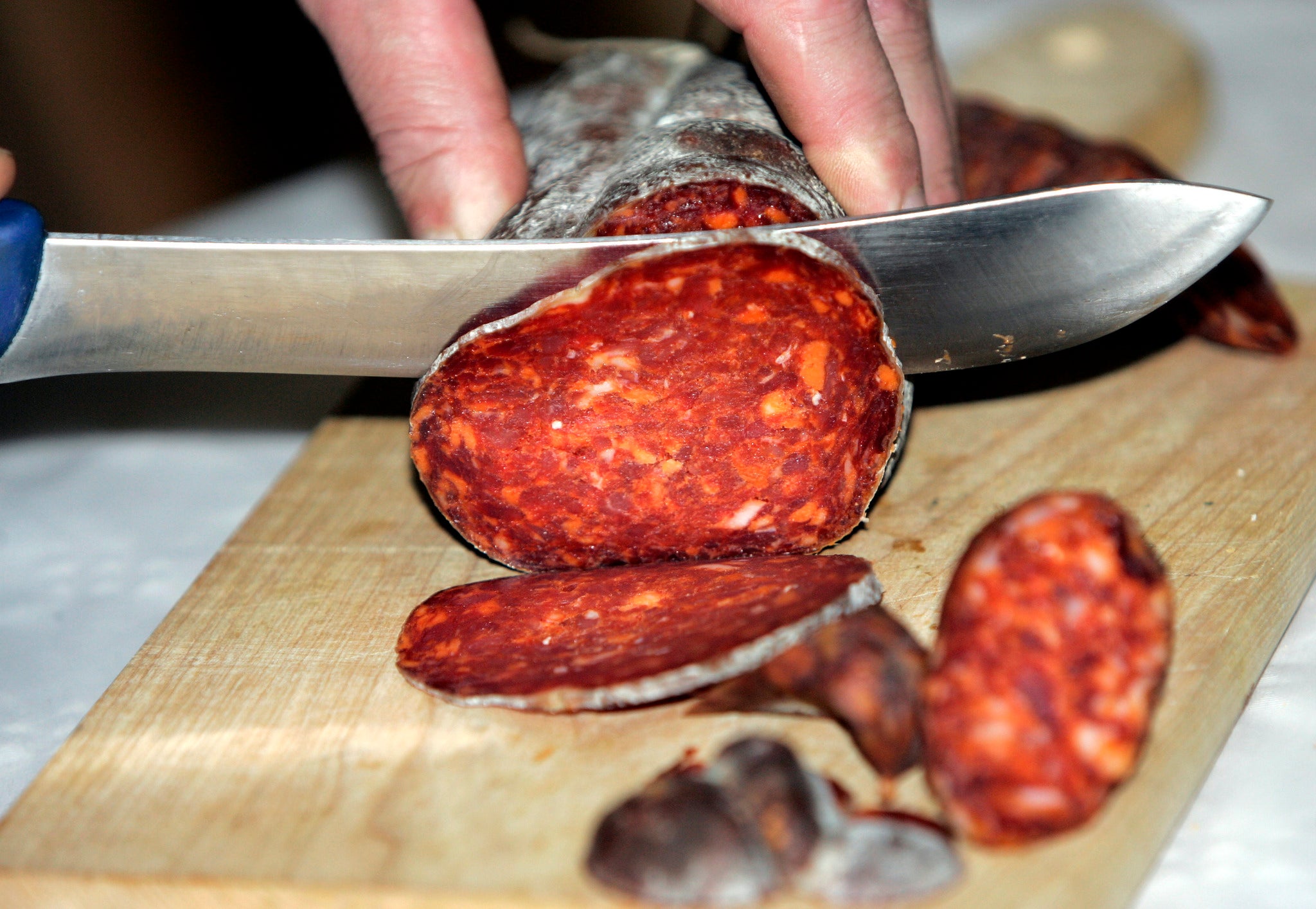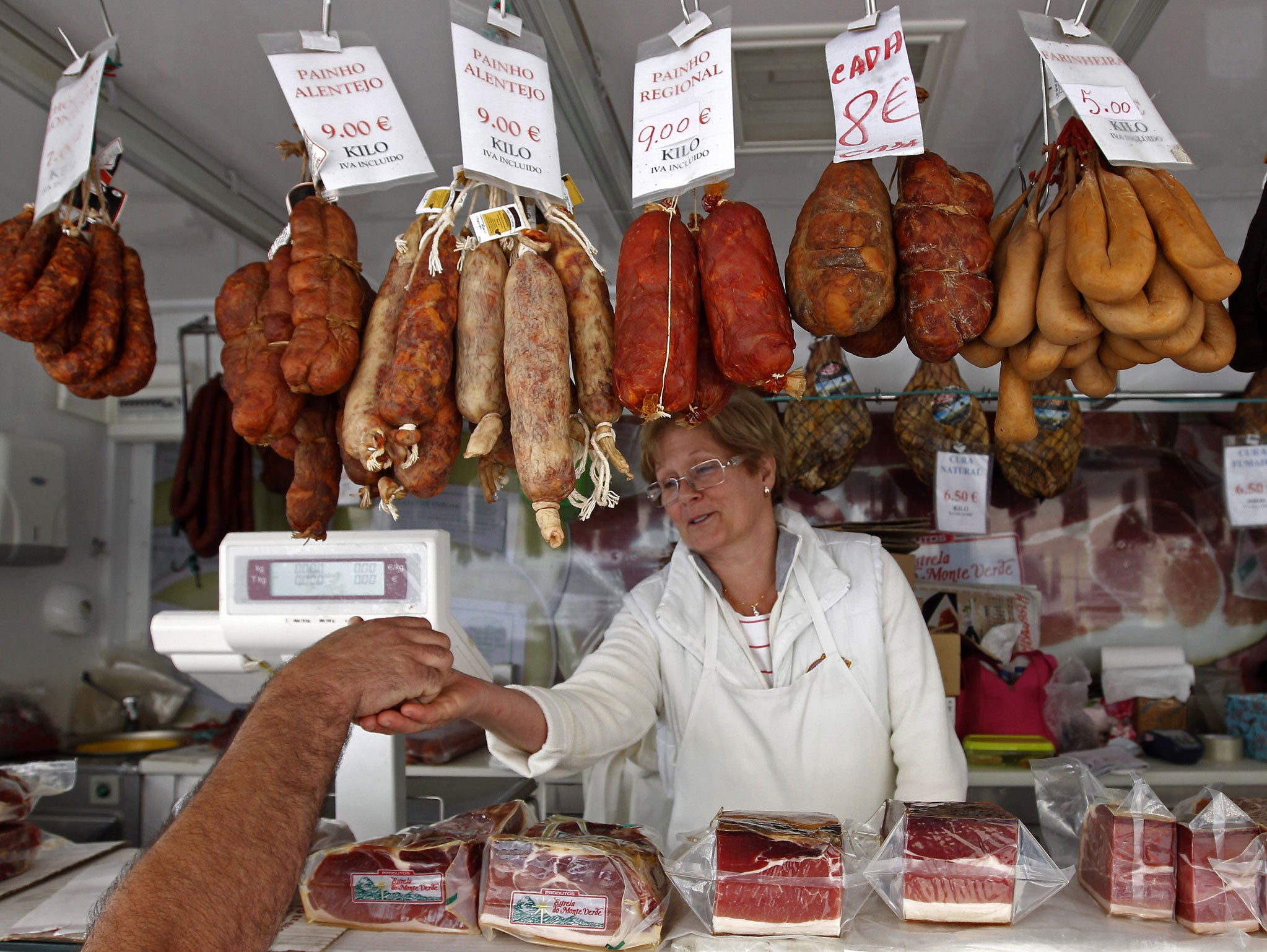Sausages made with baby poo are completely normal and super healthy, say scientists
Don't expect to see them on supermarket shelves any time soon, but this sort of bacterial innovation might be key to making healthier fermented sausage

Your support helps us to tell the story
From reproductive rights to climate change to Big Tech, The Independent is on the ground when the story is developing. Whether it's investigating the financials of Elon Musk's pro-Trump PAC or producing our latest documentary, 'The A Word', which shines a light on the American women fighting for reproductive rights, we know how important it is to parse out the facts from the messaging.
At such a critical moment in US history, we need reporters on the ground. Your donation allows us to keep sending journalists to speak to both sides of the story.
The Independent is trusted by Americans across the entire political spectrum. And unlike many other quality news outlets, we choose not to lock Americans out of our reporting and analysis with paywalls. We believe quality journalism should be available to everyone, paid for by those who can afford it.
Your support makes all the difference.Researchers say they have discovered way to ferment sausages that could turn the fatty meat product into a health food similar to probiotic yogurts. The secret ingredient? A type of bacteria found in baby faeces.
Although this may sound like either the stupidest or the most disgusting thing you’ve heard scientist get up to in recent years, the research - published in the February issue of the journal Meat Science (yes, that’s also a real thing) – is actually a fascinating insight into the common usages of bacteria in the food instury.
Bacterial fermentation is already a big part in making sausages and many varieties (including favourites such as pepperoni and salami) owe their rich and tangy flavour to bacteria, which even create lactic acids that stops the development of germs in the meat.
However, while traditional manufacturing techniques mostly rely on the bacteria that occur naturally in raw meat, researchers in Spain have been experimenting with adding probiotic bacteria instead. The reason for the sensationalist headlines? They've been collecting their samples from human faeces.
Now, to go over the whys and wherefores of probiotic bacteria a little, the term is one that's applied generally micro-organisms that are believed to provide various health benefits. Ever since the invention of the microscope, scientists have known that the human body is full of various bacteria - a primitive form of life typically just a few micrometres in length.
However, in the beginning of the 20th century scentists began to suspect that the bacteria that lives in the human gut (typically around 100 trillion bacterial cells) might actually be helping us out, breaking down the foodstuffs that our stomach acid can't handle and tackling the nastier germs we might accidentally ingest.

In recent decades this has led to many theories that adding probiotics to food products will help with a number of ailments - anything from gastrointestinal disorders such as constipation to allergic reactions. Although the science surrounding this is still not entirely conclusive, this doesn't stop researchers finding new ways to add the human-friendly bacteria to our food.
With this particular batch of sasuges the probiotic bacteria used (specifically Lactobacillus and Bifidobacterium) was sourced from 43 stool samples from healthy babies up to six months old.
This may sound like a bizarre step to take but it is in fact a standard (if not common) method for isolating probiotics. For example, Lactobacillus rhamnosus GG, a commercial strain found in a variety of yoghurts and ‘daily dose’ drinks, was first isolated from human faeces in 1983.
And why faeces? Because, if you’re on the hunt for naturally-occurring bacteria that have been busy helping the body, looking in the material that has recently passed through the body of a healthy individual is a good place to start.
Speaking to LiveScience about the research, co-author Anna Jofré, a food microbiologist at Catalonia's Institute of Food and Agricultural Research's (IRTA) food-safety program, added that “infant faeces are natural samples, easy to obtain.”
After isolating the bacteria from their samples (this process involves letting the bacteria develop in a petri dish – it’s not simply plucked from the faeces and dropped into the sausage), the researchers created six batches of fuet - a Catalonian pork sausage that's similar to chorizo minus the paprika.
Of the six strains of bacteria they used only one successfully took up home in the fermenting sausages, with the strain growing to levels of “100 million cells per gram of sausage”, enough – says Jofré – to “produce health-promoting effects to people”.
The sausages were all sampled by professional tasters who confirmed that the flavour was indistinguishable from that of regular fuet - even though they all contained less salt and less fat. You may not like the idea of sausages made in this way, but bacteria found in faeces is probably already a part of your diet - so don't complain when it makes your sausages healthier too.
Join our commenting forum
Join thought-provoking conversations, follow other Independent readers and see their replies
Comments